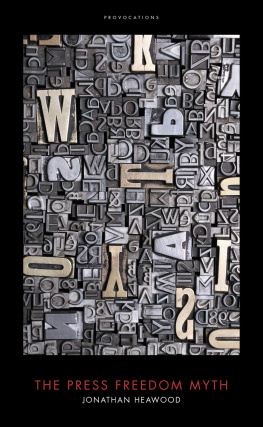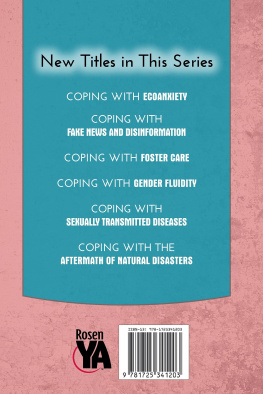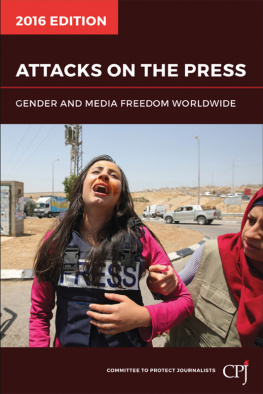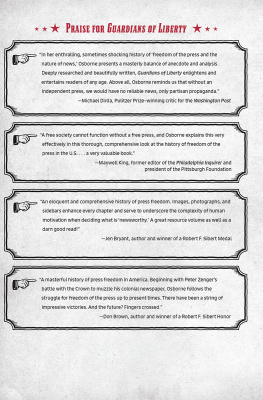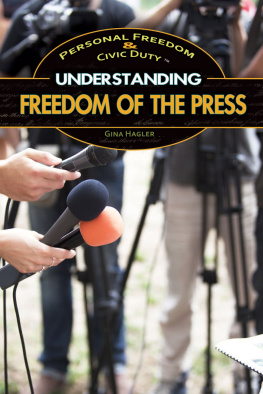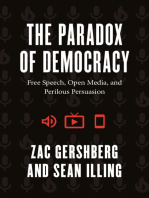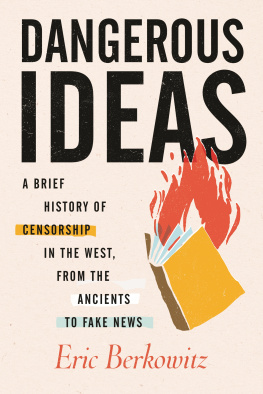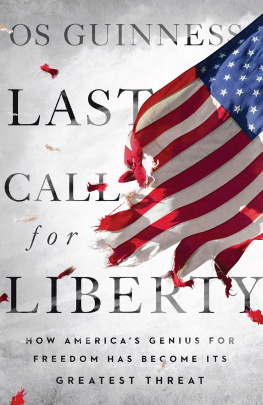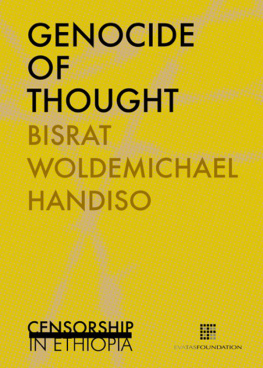I USED TO HAVE complete faith. Not in God or the afterlife or anything incredible like that, but in the concept of press freedom. For a long time, it was the closest thing I had to a religion.
I worked as a journalist and then as a press freedom campaigner. I defended the rights of reporters around the world who were imprisoned, tortured or killed for doing their jobs. I protested outside embassies, lobbied Parliaments and called for new laws to protect the freedom of the press.
To me, journalists were the good guys and anyone who wanted to silence them was the enemy. I saw what happened when well-meaning laws were used to stifle reporters, and I agreed with Thomas Jefferson that our liberty depends on the freedom of the press, and that cannot be limited without being lost. If you chip away at press freedom, I thought, you take power away from journalists and put it in the hands of the authorities. At least, that was what I told myself.
I tried to ignore the critics of the press, who pointed out that some newspapers are a tissue of lies and distortions. So what if the press is biased? I retorted. The whole point of press freedom is to provide a range of viewpoints. If you dont like right-wing papers, read left-wing ones. If you dont like celebrity journalism, ignore it. So what if journalists sometimes get their facts wrong? You dont want the state telling you what to believe, do you? You think that reporters are poking their noses into peoples private lives? Well, if youve got nothing to hide, youve got nothing to fear.
My faith in press freedom took a knock in 2011, when it came out that journalists at the News of the World newspaper had hacked into the phone messages of a murdered schoolgirl called Milly Dowler. She was neither a celebrity nor a politician, but a child who had suffered the worst fate imaginable. My doubts grew over the following year, as the Leveson Inquiry into phone hacking exposed more and more abuses of power by a range of national newspapers. I became actively suspicious as those same newspapers fought tooth and nail against Levesons recommendations, accusing him of bringing about the death of press freedom or damaging the publics right to know.
I had spent years campaigning for press freedom, and I did not believe that Levesons proposals for enhanced regulation would stop editors from holding the powerful to account or exposing corruption. I began to wonder about press freedom. Was this principle really being used to protect the public from an overmighty state? Or had it been co-opted by powerful businessmen to protect themselves from scrutiny? I started to agree with Mark Twain that, whilst there are laws to protect the freedom of the press, there are none that are worth anything to protect the people from the press.
But when I shared my concerns with friends in the industry, they were appalled. I thought you were one of us, said one former colleague in a tone of regret. I thought I still was. I certainly still believed that journalists should be free to inform their communities, represent the public and speak truth to power. But I did not believe that they should be free to knowingly lie or destroy peoples private lives or incite hatred against vulnerable groups.
I tried to explain to my old friends that they were wrong; that there was nothing to fear from Leveson; and that there must be a way to drive up standards of journalism whilst protecting the freedom of the press. But I found it difficult to talk about this when they were so fundamentalist in their views. For them, any form of regulation was anathema. They believed that society benefited from an absolutely free press despite the evidence that some newspapers had systematically abused that freedom. After a while, I gave up on these conversations. I respected the integrity of my friends position, but I thought that they were wrong.
And so I was surprised when they began to change their tune on regulation. The same editors, reporters and newspaper owners who had been noisily opposed to the regulation of newspapers began calling for the regulation of social media. All of a sudden, these hardened advocates of media freedom were appalled by the horrors that were cropping up on platforms like Facebook, Twitter and YouTube. Fake news! Hate speech!Invasions of privacy! In their excitement, they seemed to forget their own track record in these areas. They also seemed to forget their commitment to media freedom.
Until very recently, the press justified fake news as the hallmark of a free media. What, would you have a Ministry of Truth? they demanded whenever anyone called for newspapers to be regulated. Now, they were describing fake news as a threat to democracy, and calling on the government to do something about it.
I was confused. Hadnt Thomas Jefferson been right to say that if you limit press freedom, you lose it? If so, why did these newspapers want to limit the freedom of social media companies and their users? Dont social media platforms have the same rights as traditional newspapers and broadcasters? After all, Facebook, Twitter and You-Tube can be powerful tools for social change. They, too, can host content that holds the powerful to account and exposes wrongdoing. If the regulation of newspapers is dangerous, then the regulation of social media must be at least as dangerous if not more so, because it could affect what we all say to each other as individuals.
What is the difference between regulation of the press and regulation of social media? The cynical answer is that press regulation would damage the business models of some newspapers, whilst social media regulation would protect those same newspapers from competition. Effective regulation of social media would stop platforms from promoting fake news and hate speech and invading peoples privacy whilst an unregulated press would remain free to do all of those things and more. Social media regulation would allow newspapers to get back to business as usual, whilst press regulation would force them to raise their game.
Am I right to be cynical? Is press freedom just a story that newspapers use to protect their business interests? A fairy tale? If so, should we abandon press freedom, as we have abandoned other fairy tales? Or are the newspapers right? Should they be free to operate without public accountability whilst social media platforms are regulated to within an inch of their lives? Should we regulate publishers or platforms? Publishers and platforms? Neither publishers nor platforms?
The old concept of press freedom does not help us solve these puzzles. Like a stuck record, it just spits out the same word, over and over again: freedom, freedom, freedom But trying to think about the modern media using only the concept of press freedom is like using a very old hammer to crack a very modern nut. Either it will miss the nut entirely, or it will smash it into smithereens. We need to take a more forensic approach to the challenges that face us today.
In this book, I ask what press freedom means in the age of digital media. Press freedom was not handed down to us from on high, as some of its fundamentalist advocates seem to believe. It is not something that exists out there in the material world, like wind or water. It is an idea that humans invented, and so I believe we can reinvent it. The concept and practice of press freedom developed in response to the communications revolution that swept Europe in the sixteenth and seventeenth centuries. If this concept does not help us address the second communications revolution that is now upon us, then perhaps it is time for us to remake it.
If we dare.
I F YOU HAD wanted to buy a book in the Middle Ages, you would not have been able to pop into a bookshop. You would have had to commission a scribe to write out your text by hand. You would have received a beautiful object, but the cost would have been eye-watering comparable to the price of a luxury car today. In monasteries across Europe, monks had been copying and illustrating manuscripts for a thousand years. The most popular existed in a few copies, but many were unique. The canon of available literature was tiny, and largely confined to religious works.

